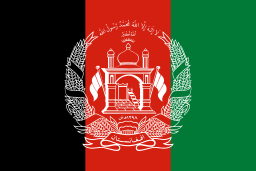
In these days, we are seeing the chaotic scenes of an Afghanistan that is being taken over by the Taliban in just a few days, while US and allied forces are withdrawing from the country. At the same time, Afghans who have worked for the US and allied forces are trying desperately to flee their country.
Veterans and other people in the USA and their allied countries are asking themselves whether the 20 years of war have been in wain. The answer is a disheartening yes, despite some progress in education and modernization during these 20 years.
The Afghanistan war was misguided in the first place and the failure was predictable. As a theorist, I want to take this sad opportunity to explain the theories that should have told the warmakers that this war was doomed to failure.
War, and fear of war, has very strong psychological effects. People who fear external enemies are likely to develop an authoritarian psychology involving the desire for a strong leader, strict discipline, and intolerance. This is known from psychological theories of authoritarianism and group psychology and confirmed by many historical examples. The new regality theory adds a deeper theoretical understanding of this effect. This psychological reaction to war has evolved because people in primordial times would need a strong leader in times of violent conflict in order to suppress free riding. Peace and security, on the other hand, leads to egalitarianism, tolerance, and an appreciation of democracy according to this theory (1).
It follows from regality theory that the best way to create democracy is to promote peace and security, not war. The historical record shows repeatedly that peace comes before democracy, not vice versa (2). All attempts to install democracy by military means have been unsuccessful or led to very unstable and short-lived democracies.
The Afghanistan war had two official goals: to get rid of the terrorists that were blamed for the terror attacks of September 11, 2001, and to help establish democracy in Afghanistan. The military operations succeeded in eliminating individual terrorists, but others are ready to replace them. The grievances that motivated the terrorists in the first place are only exacerbated by the war. At the same time, the war leads to increased authoritarianism and extremism in the attacked people, according to the theories that I have explained above. In other words: counterterrorism is counterproductive. It only helps recruit new terrorists.
Terrorism is a vicious circle. It leads to regal (authoritarian) psychological reactions in the populations attacked by the terrorists. This regality increases the motivation to use violent and military means to defeat the terrorists. And this violence in turn increases the regality and extremism in the population that the terrorists are recruited from. This cycle of violence makes such a conflict intractable or very long-lasting. The conflict in Northern Ireland was a clear example of this.
I assume that military intelligence experts are aware of these psychological effects of war and fear. At least, these psychological effects have been exploited in psychological warfare for many years by both East and West (1). Politicians, on the other hand, may have believed in the so-called democratic peace theory. Many of the politicians in the USA and allied countries may have honestly believed that they were fighting for democracy, while the top military strategists have probably regarded the talk about fighting for democracy as mere propaganda. For them, the main motive has most likely been to reduce Russia's influence in the region.
I predicted seven years ago that the power of the USA will be weakened and that we will see changes in the balance of power in the world (3). Right now, we are seeing China and Russia gaining more influence in Afghanistan while USA and its allies are pulling out. All in all, we must conclude that the war has failed on this account as well.
We have only seen the beginning of changes in the balance of powers. The USA has been spending enormous resources on asserting its strategic interests in all parts of the world. As the USA is forced to cut down on these activities, we will see more political changes in conflict zones elsewhere. The international prestige of the USA is also declining as more and more people are questioning the soundness and legitimacy of the many US-led wars.
If the trillions of dollars spent on the Afghanistan war and other wars had instead been invested in development, education, health, and elimination of poverty, we would surely see more peace, democracy, and freedom in the world than we have today.
While the climate crisis is escalating, we must also look at the climate effects of war. The military is among the biggest CO2 polluters. The short-term military goals have always had higher priority than long-term environmental considerations. This is yet another reason why the legitimacy of this kind of wars is being questioned.
Many people are now shocked by seeing that the war in Afghanistan and the untold suffering on all sides have been in vain, and they feel that they have been deceived by their politicians. This makes more people start to question the sanity of the Iraq war and other wars as well. We will no doubt see a growing resistance against wars in the population for the years to come.
References:
1. Fog, Agner: Warlike and Peaceful Societies: The Interaction of Genes and Culture. Open Book Publishers 2017. https://www.openbookpublishers.com/product/657
2. Gibler and Owsiak. “Democracy and the Settlement of International Borders, 1919-2001.” Journal of Conflict Resolution 62 (9): 1847–75, 2017. http://dmgibler.people.ua.edu/uploads/1 ... velope.pdf
3. Fog, Agner. Can a collapse of current economic empires be predicted? 2014. https://www.agner.org/cultsel/collapse.pdf